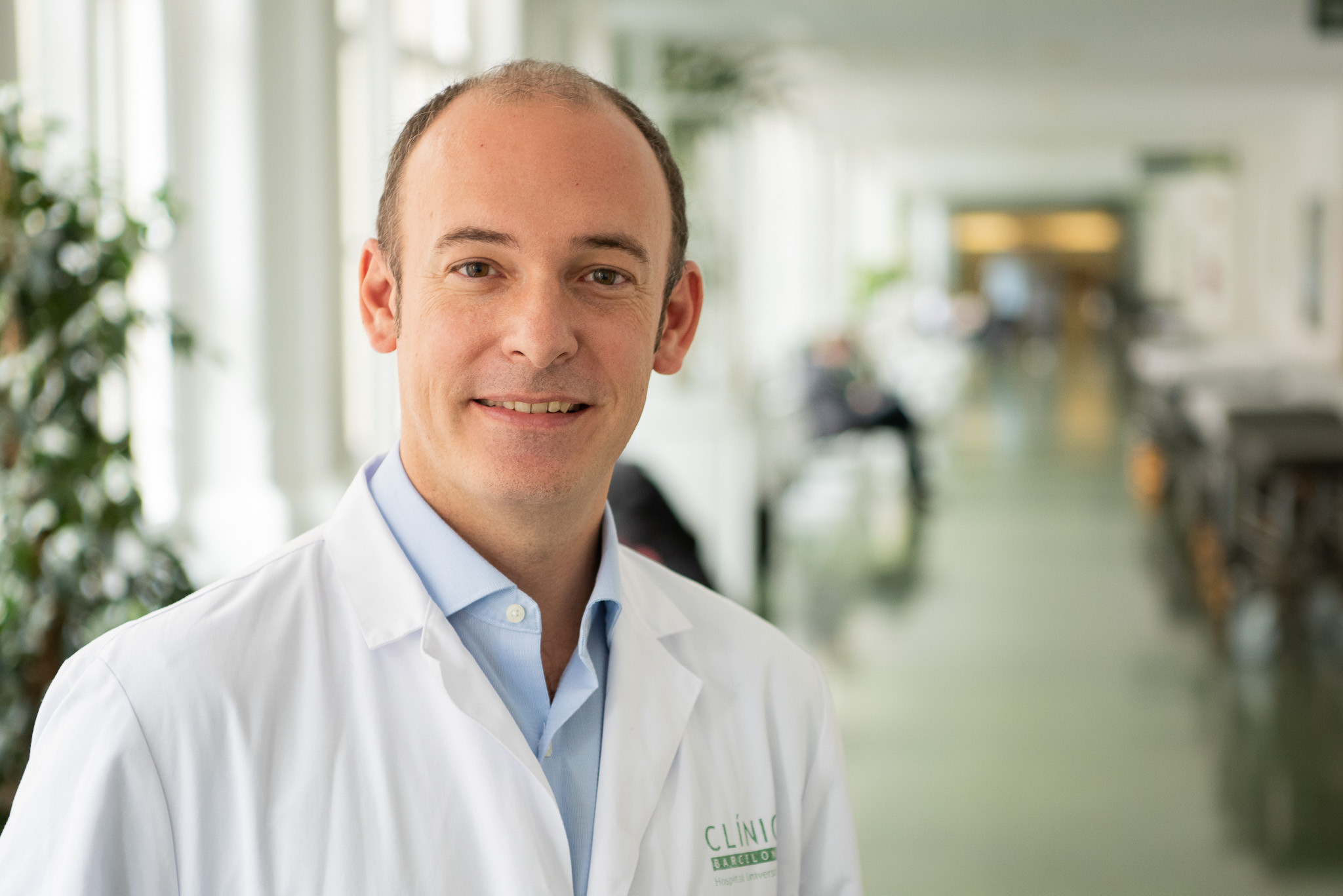
Aleix Prat «As an oncologist, what I want is for these instruments to be available for use in our practices»
In September 2020, Dr. Aleix Prat, head of the Medical Oncology Department at the Hospital Clínic of Barcelona and tenured professor at the University of Barcelona, founded Reveal Genomics together with other researchers with whom he had been conducting research for years. This spin-off of the University of Barcelona, the Hospital Clínic of Barcelona, and the Vall d’Hebron Institute of Oncology (VHIO) was created with the aim of developing innovative diagnostic tests in the field of breast cancer.
What does Reveal Genomics do?
The mission of Reveal Genomics is to revolutionise the implementation of precision oncology. Precision oncology is an area that has been gaining momentum in recent years and is based on the use of biological data (such as blood, tumour biopsies, etc.) to help make better diagnostic and therapeutic decisions. At Reveal Genomics we combine both biological data and clinical data, such as tumour size, with bioinformatic statistical algorithms to better predict how the patient will fare with a specific treatment, whether she will have a better survival chance, etc. We base our work on an approach that has proved its feasibility for over ten years now.
On what projects is Reveal Genomics working?
Right now we are working on two major projects. The one that is further along focuses on a subset of breast cancer patients (which represents 20% of cases) and involves the so-called HER2-positive protein. These patients are currently treated in a very standardised way: lots of chemo, lots of drugs against this protein, and so on. However, our research in this area has shown that this breast cancer is highly heterogeneous biologically speaking and in terms of how it develops too. In this sense, we think that our biomarker will help to fine-tune who will need more chemo, who will need less, who will need more drugs, and to make predictions about survival, which is something for which we do not have instruments at the moment.
The other project is aimed at patients with more advanced-stage cancer and metastatic tumours for which there is currently no cure, but which we are increasingly managing to turn chronic in order to extend the survival of patients. Here we face the problem of biopsying patients’ tumours, which can sometimes be complicated. This project is at a very early stage, but the idea is to try to develop a test that allows us to conduct biopsies on blood instead of on tumours. This test will be different from what is currently out there, as our approach is very unique and, we think, can add value in this field.
How will this improve the life of patients?
It will help to improve diagnosis and, above all, it will enable oncologists to better personalise treatments. The problem we oncologists have is that we can integrate three or four pieces of data, but our brain is limited. These projects will provide tools to integrate much more data and thus help oncologists to personalise the treatment of these two types of cancer in a much more precise way. This would improve the quality of life of patients.
Are there any other centres or companies currently involved in this field?
One of the first things we did was to carry out a market analysis to see what competitors we could have in the area of precision oncology, which is highly competitive in the pharmacological field, but perhaps less so in diagnostics, which is where we operate. We think our approach is quite unique thanks to our cutting-edge research and to our team, which is our true strength.
Did you ever think that you would set up a company as a researcher?
No, actually. It was Patricia Villagrasa, the current CEO of Reveal Genomics, who asked me what we should do with all the scientific production we had: whether we wanted it to sit there or whether we wanted to take a step forward. We jointly decided to embark on this initiative and take this step forward to bring precision oncology research to the clinical setting through this spin-off. I am a doctor, an oncologist, I treat patients, and what I want is for these instruments to be available for use in our practices someday. This required the creation of a company, that was the solution we found. I think that the ecosystems that have been created to help this happen ever more often are great, because research should be transferred to patients, and what better way is there for this than to involve the people who have carried out all that research?
What is the significance of knowledge transfer?
I think we have a responsibility —in my case, personally, as both a doctor and a researcher— to improve things and not just stick to what we are given. After all, we receive public funding, and I think that this should lead to something. At least, we have to try. Sometimes it is true that there comes a point where very large investments are required, and the only way to move forward is through knowledge transfer. I am convinced of this, and I encourage everyone who has something to transfer to try to do it.
More about Aleix Prat
The best invention in history
A turning point in my field was the sequencing of the human genome, which I think is what has totally energised our approach to cancer.
What would you like to see in the future?
More cures for cancer by curing more patients, but also by curing better, with more precision, which I think is just as important.
An advancement that scares you
The Internet, with both its good and bad things.
The FBG is…
The UB’s institution that carries out knowledge and technology transfer.

